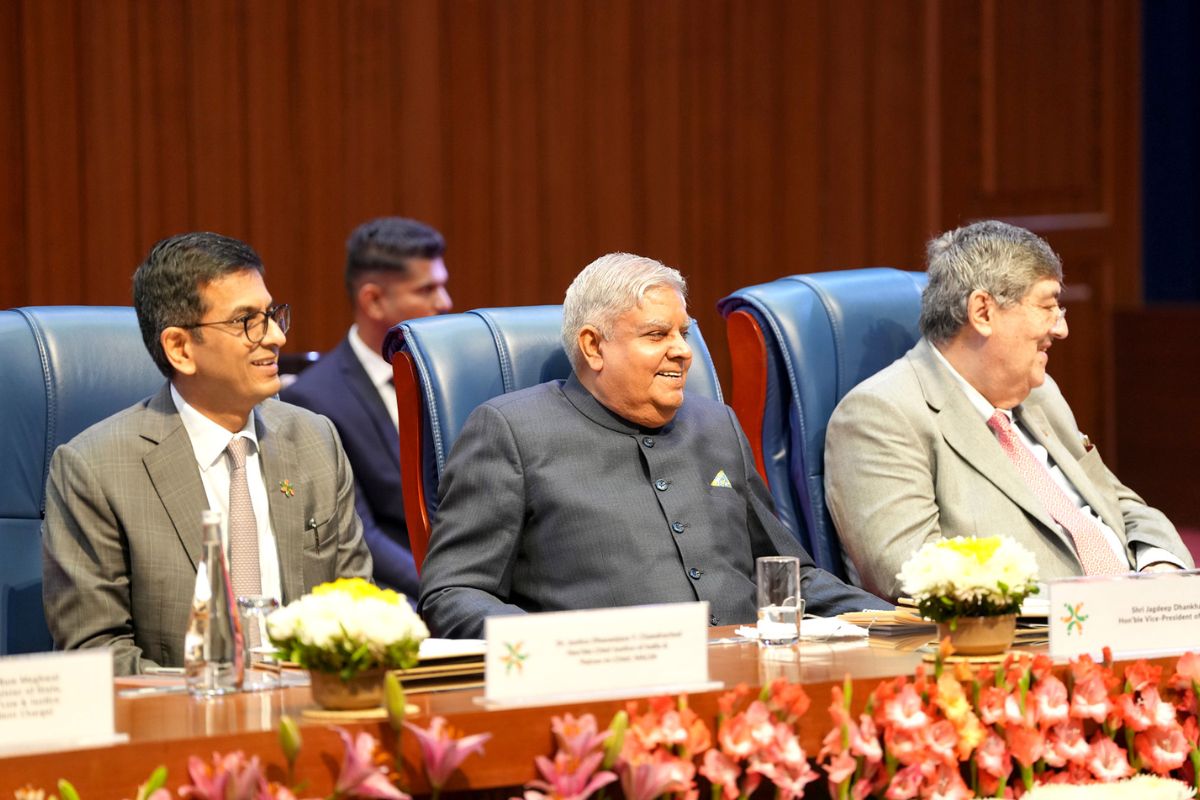Pointing to the projected economic shift from ‘global north’ to ‘global south’ by 2030 when the latter will have three out of four world’s largest economies, and the domination over the discourse about human rights and access to justice by the America dominated metaphorical ‘North Atlantic’, Chief Justice of India, Justice DY Chandrachud on Monday called for “amplification the justice needs of under-represented populations” of the countries in Asia Pacific.
Referring to a universal “shift in wealth” from the “metaphorical ‘North Atlantic’ to ‘Asia Pacific’” by 2030, Chief Justice Chandrachud pointed out: “The discourse about human rights and access to justice has been historically monopolized by voices from the Global North, which often makes such dialogue unsuitable for application in other contexts. Undeniably, it is imperative to amplify the justice needs of under-represented populations in our respective countries.”
Advertisement
Chief Justice Chandrachud said that this in his address at the first Regional Conference on ‘Access to Legal Aid: Strengthening Access to Justice in the Global South’ jointly organised by the National Legal Services Authority of India (NALSA), the International Legal Foundation (ILF), the United Nations Development Program (UNDP), and the United Nations Children’s Fund (UNICEF).
Pointing to the shift in changing economic scenario from ‘global north’ to ‘global south’, the Chief Justice Chandrachud said: “There has been a universal “shift in wealth” from the metaphorical ‘North Atlantic’ to ‘Asia Pacific’ by 2030, it is projected that three of the four largest economies will be from the Global South. The GDP in terms of purchasing power of the Global South-dominated BRICS nations surpasses that of the so-called Global North’s G7 club.”
Connecting the discourse of the human rights and access to justice with the economic might of the people expounding and advocating them, the Chief Justice of India said, “The discourse about human rights and access to justice has been historically monopolized by voices from the Global North, which often makes such dialogue unsuitable for application in other contexts. Undeniably, it is imperative to amplify the justice needs of under-represented populations in our respective countries.”
The CJI further said that the concept of justice has historically been construed as applicable solely within the confines of a sovereign state and given the “intricate web of transnational relationships in the present age, our conceptions of justice have also changed. In these transnational relationships, not all nations are treated equally.”
Pointing to the “solidarity and belonging” that some nations share and for the ‘Global South’ it becomes an important point of collaboration, Chief Justice Chandrachud said, “The term is not geographical, but rather it reflects political, geopolitical and economic commonalities between certain nations. Several nations in the Global South, including India, have historically been at the receiving end of imperialism or colonial rule.”
CJI Chandrachud further said that these “political, geopolitical and economic commonalities” have resulted in a relationship of “unequal power, with such nations being forced into the periphery of the world economy.”
It is for this reason that before academics used the term ‘Global South’, terms such as ‘developing,’ underdeveloped’ and ‘third world’ had gained wide currency.
Reiterating to the commonalities, the CJI said that one of the reasons why nations in the Global South have been able to achieve economic prosperity is their willingness to recognize their unique needs and collaborate with each other.
He further said that the countries in the Global South have been grouped together not only in terms of their economic status or shared colonial history but also based on their legal response to their colonial past and socio-economic conditions.
Apparently referring to the commonality of constitutional vision of the countries belonging to the Global South, the CJI said: “Our constitutions are a deviation from the language of constitutionalism and justice prevalent among Western Nations…”
He referred to a scholar who had described constitutions in the Global South as “sharing a core normative commitment towards state institutions having obligations to address the economic injustices and inequalities in their societies.”
For instance, the CJI said that the constitutions of several nations in the Global South are cognizant of the existence of indigenous minorities, who have been historically prejudiced, and expressly recognize their rights through special provisions.
Provisions providing for affirmative action in education, public employment, and the legislature for Scheduled Tribes in the Indian Constitution is one such example.
Pointing to the extraordinary role that the judiciary has the potential to play in increasing access to justice, the Chief Justice Chandrachud said: “Countries, including India, have developed ingenious legal Page of practices to increase access to justice. For instance, since the early 1980s, the Supreme Court has made revolutionary attempts to increase access to justice by way of its Public Interest Jurisprudence. The court removed procedural barriers to access the Supreme Court and allowed all citizens to approach the court for the amelioration of socio-economic injustices.”











